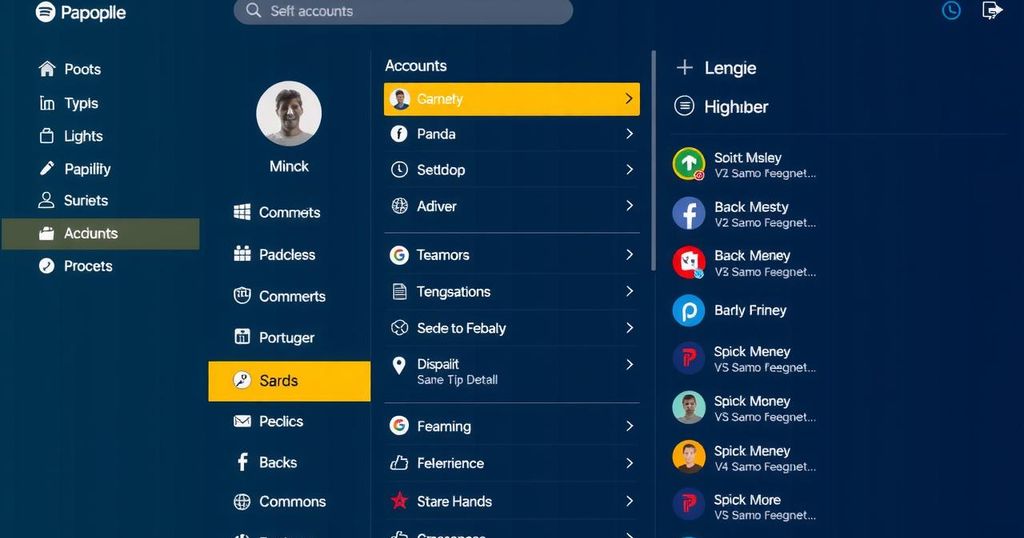Climate change
AC, AFRICA, CAME, CAMEROUN, CLIMATE CHANGE, CLIMATE JUSTICE, ECA, INTERNATIONAL COOPERATION, KENYA, PARIS AGREEMENT, PRETORIA, SENEGAL, SIERRA LEONE, SOUTH AFRICA, SUSTAINABILITY, UGANDA, UNCC, UNCC : LEARN PARTNERSHIP, WEATHER AND CLIMATE INFORMATION SERVICES FOR AFRICA
Jamal Walker
0 Comments
Empowering Women Journalists in Climate Change Reporting Across Africa
The ACPC, in collaboration with partners, is enhancing climate change knowledge in Africa through training programs and online learning modules. This includes a two-week virtual training course for African women journalists aimed at strengthening their capacity in climate change reporting. The initiative focuses on science comprehension, policy frameworks, and gender perspectives, ultimately seeking to improve effective communication of climate information across various media.
The African Climate Policy Centre (ACPC), in partnership with various organizations, is leading initiatives to improve climate change knowledge across Africa. In 2016, the ACPC organized a training event titled “Mainstreaming Climate Information and Services into Legislation and Development Policies”. This event brought together legislators and youth groups from across the continent. Additionally, ACPC, under the DFID-funded WISER program, collaborated with UNCC: Learn to develop an online module on climate information and services, which has educated over 6,000 learners worldwide, aiding training programs in Kenya, Uganda, Sierra Leone, Cameroon, and Senegal. Effective climate change reporting hinges on stakeholder engagement and the dissemination of key insights, with media playing a vital role in conveying information to communities affected by extreme weather. Increased awareness of climate change among public officials is critical for integrating climate policies grounded in sound evidence into economic planning. However, many regions of Africa still grapple with insufficient skills and awareness concerning climate change drivers, exacerbating vulnerability to extreme weather phenomena such as droughts, hurricanes, and heat waves. In this context, the Economic Commission for Africa (ECA), in collaboration with the Pan African Climate Justice Alliance (PACJA), invites applications from African women media practitioners for a two-week training course designed to bolster their capacity to report on climate change. This virtual training aims to equip female journalists with the necessary skills and knowledge to effectively engage with climate change topics. Participants will learn about the science of climate change, global governance frameworks, and human dimensions like gender perspectives. The course also emphasizes collaborative efforts among female journalists and the planning of investigative journalism assignments focusing on climate issues. Furthermore, it explores stakeholder mapping to optimize dissemination channels and utilizes contemporary reporting tools to enhance accuracy and impact. The training course will consist of interactive modules designed for ease of learning, accompanied by comprehensive reading lists, presentations, and discussion guidelines. It targets women journalists from all media sectors in Africa, regardless of age. Applications are accepted until the registration deadline via the IDEP online platform. IDEP actively promotes the participation of qualified women in its training programs, underscoring its commitment to gender inclusion in climate change reporting initiatives.
The ACPC has been instrumental in fostering climate change knowledge across Africa, initiating significant programs aimed at enhancing media engagement and policy understanding of climate issues. The collaboration with UNCC: Learn to create an online module aligns with these educational efforts to empower individuals and communities through enhanced climate literacy. The challenges posed by climate change necessitate urgent and informed responses, particularly in regions most vulnerable to extreme weather. The upcoming training initiative is therefore a critical step towards building a network of informed female journalists dedicated to climate reporting in Africa.
In conclusion, the call for African women climate change media practitioners to participate in this training course represents an important opportunity to strengthen the capacity for effective climate change reporting on the continent. By equipping journalists with the necessary skills and knowledge, the initiative aims to improve the dissemination of accurate climate information, which is essential for informed policymaking and community awareness. This program not only addresses gender disparities in the media sector but also aims to bridge the gap in climate change understanding, preparing journalists to tackle the pressing issues associated with climate change impacts in Africa.
Original Source: www.uneca.org




Post Comment